Apple's ode to perfection is already a little worn out. We often hear biased words of praise about an apple company and its products. A unique company. A tech giant from Silicon Valley. A miracle founded by the genius Steve Jobs. Everyone who is interested in the happenings in the Apple world knows these and similar phrases. However, celebratory lyrics rarely get to the point and only circle around well-known clichés. So what makes Apple so unique? Is it even there yet? The following article will try to analyze these and many other questions in detail - and perhaps with a bit of a philosophical undertone. He will hone in on all the areas in which the Cupertino company has its influence. It will be about history, products, design, healthcare and politics. Take your time, sit back and think about Apple in a broader context than we are used to thinking about together with the text.
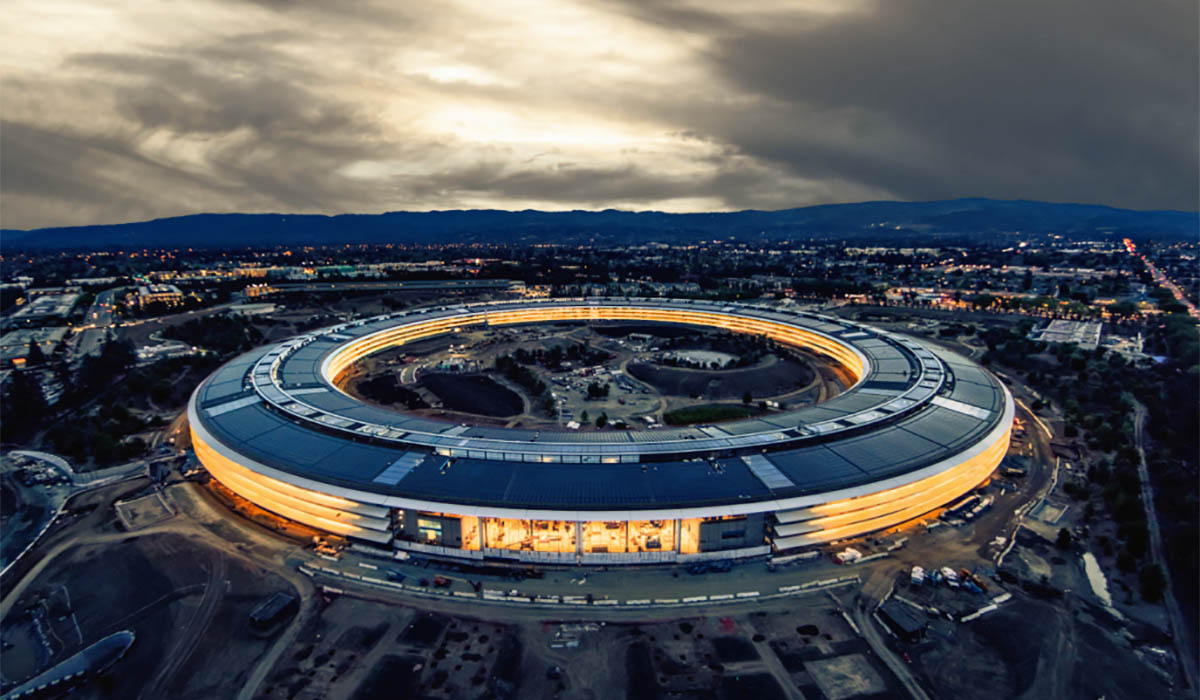
About a brave knight
Let's get a little poetic. The story of the Cupertino company is relatively well-known in its abbreviated form. The general awareness of the company's history is also helped by its certain touch of a fairy tale with a happy ending. The protagonist of the story, Steve Jobs, sets up a small computer company in his parents' garage with his friend Steve Wozniak. The rough beginnings quickly turn into a rapidly growing company, over which, however, the main character gradually loses control and leaves it after significant disagreements with the board of directors. He builds a new company, which later allows him to return to the dying Apple, and like a true mythical hero, he arranges for everything to turn around for the best. The company soon comes up with revolutionary products that, without exaggeration, will move the world. And a year after Jobs' death in 2011, Apple would become the most valuable company in the world, and it more or less holds that position to this day.
Of course, it was by no means that simple. However, it is understandable that the history of the company is significantly idealized and distorted. In any case, this story with a globally known hero (Who among you knows, for example, the founder of Huawei?) plays into the company's hands and has allowed it to create a strong fan base, for many of whom Apple is a real heart. But more on that later.
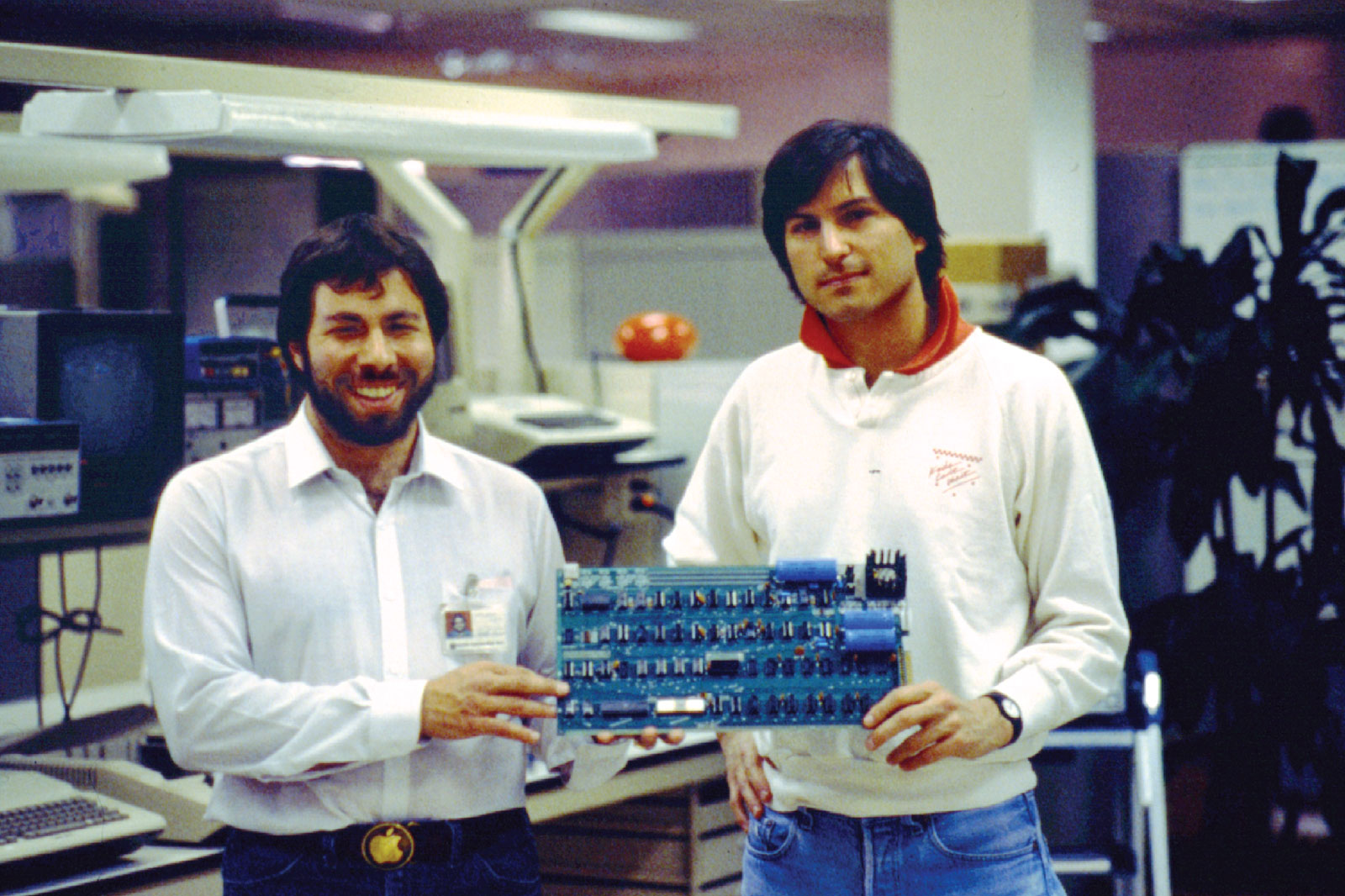
Still the same Apple. Or not?
Even 8 years after the death of Steve Jobs, it is still coming across that it is not the Apple that it used to be under his leadership. Of course, nothing can be objected to that, and it would perhaps be strange if nothing changed after Jobs' departure. However, one thing is really missing from today's Apple - an icon on its forehead. While Jobs was known even to complete laymen in the field of technology, Tim Cook is rather in the background and is still missing in the subconscious of the general public. On the other hand, a certain illusion has been created around the founder, which is rather detrimental to today's management. Three years ago, it the interview was beautifully captured by Eddy Cue.
"The world thinks that under Jobs we came up with groundbreaking things every year. Those products were developed over a long period of time.”
This illusion persists. However, if we look with a critical eye at, for example, the development of the iPhone in recent years, we haven't really seen any revolutionary changes. In the past, breakthrough products didn't come every year, but every few years a certain milestone appeared. We haven't seen him in recent years.
It could be interest you
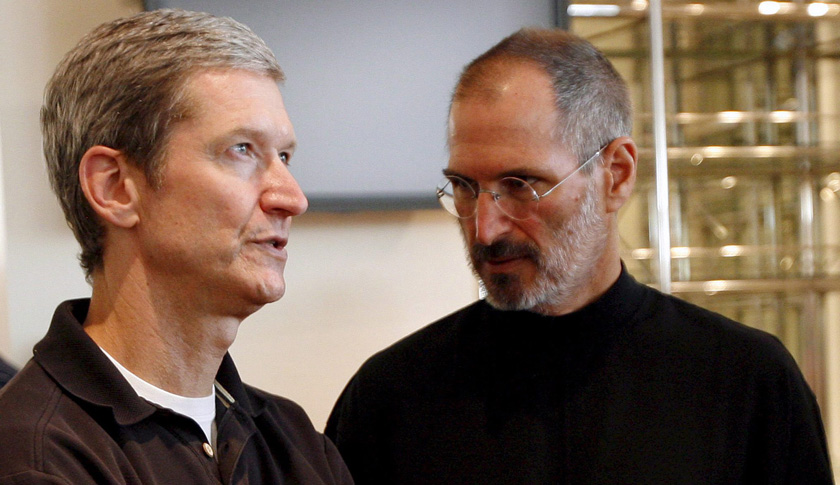
Don't let it run away or a new strategy without groundbreaking news
Apple Watch or iPads have replaced the iPhone in the field of novelties, which, thanks to the new operating system presented at WWDC this year, have become closer to Macs. However, the real effect of enthusiasm for new products has been somewhat lacking in recent years. And the clarity of the portfolio, which was so typical for the apple company, is also missing. The reasons for all this can be found in the maturity and saturation of the smartphone market and technology in general. Ten years ago, for example, smartphones were a novelty owned by a small percentage of people. Today, the former technological gadget has become rather a matter of course, without which even a ten-year-old elementary school student can often do without.
Of course, this also requires a change in strategy, which Apple has resorted to in recent years, which consists in keeping and satisfying existing customers rather than acquiring new ones or attracting attention with bold innovations. In connection with this shift in strategy, we can also observe significant progress in the field of services and the advent of the subscription model. The goal of these changes is primarily to retain (and to some extent even close) customers in their own ecosystem. And those customers are estimated to be more than 600 million (2016 Credit Suisse estimate), roughly equivalent to the population of North America.

An army of fans and detractors
Apple is famous for its large community of supporters and enthusiasts, for whom it is perhaps even a cult. Manifestations of this enthusiasm can be seen every year at the start of sales of new devices, when the most radical Apple fans are able to camp in front of Apple Story for several days just to be the first to hold the novelty in their hands. Apple is also quite popular among filmmakers and writers compared to other technology companies. Now we are not talking about the frequent product placement in Hollywood films, but about images where the main subject is the company itself or its founder. The legendary film Pirates of Silicon Valley or the most recent film with the simple name Steve Jobs are definitely worth mentioning. And there is a similar interest in this topic can also be seen in the literature.
It could be interest you
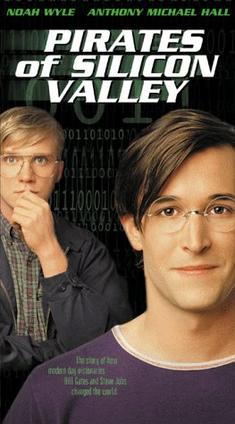
In a broader context, we can observe that the Cupertino company sets in motion many other areas that want to ride the apple wave of enthusiasm. Not to mention the unprecedented number of news sites (including ours) that focus exclusively on Apple. It is possible to find around a dozen of them on the Czech Internet alone. In addition to news sites, specialized forums and communities, there are also somewhat eccentric ways to gain exposure to technological news and help your business at the same time. For example, by starting a "Will it blend?" YouTube channel where you post videos about how you mix the latest iPhones and iPads. There are really many ways.
A target of criticism and ridicule
However, just like the large army of supporters of the iPhone manufacturer, there are also a significant number of detractors, for whom Apple is the target of criticism and ridicule. The cruel pricing policy that forces customers to pay exorbitant amounts for equipment that can be obtained in a similar form for half the price is often criticized. This is also related to the closed (but, on the other hand, sophisticated and reliable) ecosystem of devices, due to which, in most cases, customers are not deterred by the higher price. We can also encounter criticism of prioritizing design over practicality. Which recently came to life with the start of issuing Apple Cards, for which Apple even created special instructions on how to care for the card. Of course, we cannot forget competing manufacturers who from time to time take over from Apple they will make fun. But sometimes it can also turn to their disadvantage, as in the case of Samsung, which first took issue with its main competitor due to the lack of a headphone jack, but later ended up with it itself.
Unrivaled range of accessories
Whatever one's relationship with Apple is, one victory will not be denied for a long time. The company succeeded in making its devices, especially phones, so popular that accessory manufacturers thought of them in the first place. Looking at the range of smartphone accessories, we quickly find that there are several times more accessories for all types of iPhones than for any other smartphone. Which creates an imaginary vicious circle - iPhones are unique and popular as devices, so there are more and more accessories for them, people buy them and buy accessories. And so on and on. While it's certainly not Apple's primary goal to motivate other accessory makers to create them, it's a nice side effect that increases revenue for both parties. And sometimes it even leads to creation such bizarre things as iPot.
Everything is copied
As already mentioned, Apple has several times in the past shown its own version of the future of a certain industry, for example mobile phones or music players, or essentially created a category, as was the case with the iPad. It is therefore not surprising that other manufacturers were sometimes unashamedly inspired. At one time, the lawsuits between Samsung and Apple were emblematic of copying. Some of them were obvious when looking at the similarity of the devices, others were more about small things from the point of view of a casual observer. However, if we generalize the issue of copying the Cupertino company, we can be very surprised to find out in how many areas Apple sets the direction.
Design in general, technology and business model
The most visible and obvious way of copying is, of course, the external appearance of products and operating systems. For example, when the now ancient iOS 2013 with a completely new look was introduced in 7, it was very interesting to observe how the simple and minimalist look began to be imitated not only in Android, but also in completely different industries. Today we almost don't notice it anymore, but it wasn't until then that thin fonts and color transitions suddenly started appearing everywhere. From the Hospodářské noviny website to election billboards. It must be added that iOS 7 was not received entirely positively after its release, and Apple's chief designer Jony Ive, who had a large part in the new look, faced criticism and ridicule on social networks. It will therefore be very interesting to see what direction design will take after his departure.
It should also be emphasized how Apple is still trying to change established standards today. This means the replacement or complete omission of a certain, until then self-evident, part of a certain product. There are several examples. Omitting the CD drive on the MacBook Air in 2008, canceling the 3,5mm jack on the iPhone, or replacing all ports on MacBooks with a USB-C interface. At the time of their introduction, these were all emotional steps that were difficult for some users, but later, thanks to them, Apple, with exceptions, every time managed to set new standards, to which the rest of the industry gradually resorted.
However, the imitation does not end there. Apple also set a certain standard with the appearance of its characteristic Apple Stores, the layout and design of which are faithfully copied by other corporations. Microsoft, Xiaomi or even McDonald's. In the same way, the internal corporate organization, the foundations of which were laid by Steve Jobs and which is supposed to be one of the main ingredients in the recipe for the company's success, remains a source of inspiration.

On the other hand, Apple is lagging behind somewhere
Not in all areas, however, is Apple leading the way. We can also find sectors in which the company is barely keeping pace. Or how many times he doesn't even want to hold it for certain reasons. Many users would certainly welcome a MacBook with a touch screen, but its launch is quite unlikely today, as despite significant improvements in the form of iPadOS, Apple wants to have a clear separation of iPad and Mac. Another example is cloud services, whose price list is not yet very attractive and customers often prefer the competition. A persistent shortcoming (which, however, Apple is somewhat relying on) is the closedness of the systems and their inability to adapt them. Today, we are not even talking so much about iOS, which is gradually opening up more and more, but rather about tvOS, whose potential is not fully utilized today. And the already mentioned prioritization of design over practicality is an often criticized shortcoming. Today, the Apple Card is being talked about in this context, but it would certainly be possible to find more such examples.
Trump and Babiš are no longer just about computers
What is often forgotten, however, is the fact that Apple, like other technology companies of similar importance, intervenes quite significantly in politics. That's why from time to time a photo appears in which Tim Cook is next to Donald Trump or even Czech Prime Minister Andrej Babiš. Tim Cook, however, unlike other CEOs of companies, often does not hide his political views, in interviews he expresses himself on economic and social topics, and as a representative of such an important company, he has the power to influence decisions on the imposition of tariffs on products from China. However, the fact that a company of such dimensions also has a certain political influence is common when looking at history.
Today we are talking about a different problem. Above all, about the fact that the entire global digital market is controlled by only a handful of companies that hold truly gigantic power in their hands. That's why voices are being heard more and more often wanting to somehow keep these companies on the ground. One of them is the "founder of the Internet" Tim Berners-Lee, who would like to one day clipped the wings of the technological giants. He didn't say exactly how he wanted to do it. As do politicians who, for reasons that are unclear, would like to make the App Store an institution independent of Apple. However, Apple's clashes with politics are not always so serious. Half a year ago, for example, Donald Trump caused several days of entertainment on social networks when he mistakenly addressed the CEO of Apple as "Tim Apple" instead of "Tim Cook".
The fight for human rights and the environment. But...
As for other areas in which Apple has its influence, concern for the environment cannot be neglected. Whether it's Apple's new Park location powered by 100% renewable energy, or its efforts to make its products largely recyclable and made from the least environmentally harmful materials, there's an attempt to lead by example and mitigate impacts technology on the environment and the still controversial global warming. Apple also takes a negative stance towards racism and discrimination against minorities, for example with its politically correct emoticons, and it also tries to ensure respect for human rights in the Chinese factories where its devices are assembled. However, the extent to which photos of smiling Foxconn factory workers are credible is not entirely clear. The controversial steps that Apple took a week ago at the insistence of the Chinese government are also contrary to the fight for human rights. Applications that supported the Hong Kong anti-regime demonstrations were removed from the AppStore. And it wasn't the first time China commanded and Apple obeyed. While before it was mainly about influencing politics by an apple company, there are often situations where it is the other way around. In this case, Apple certainly does not follow the interests of the Chinese government, but rather does not want to weaken its position in the market there, which has been very important for technology companies for a long time.
It could be interest you
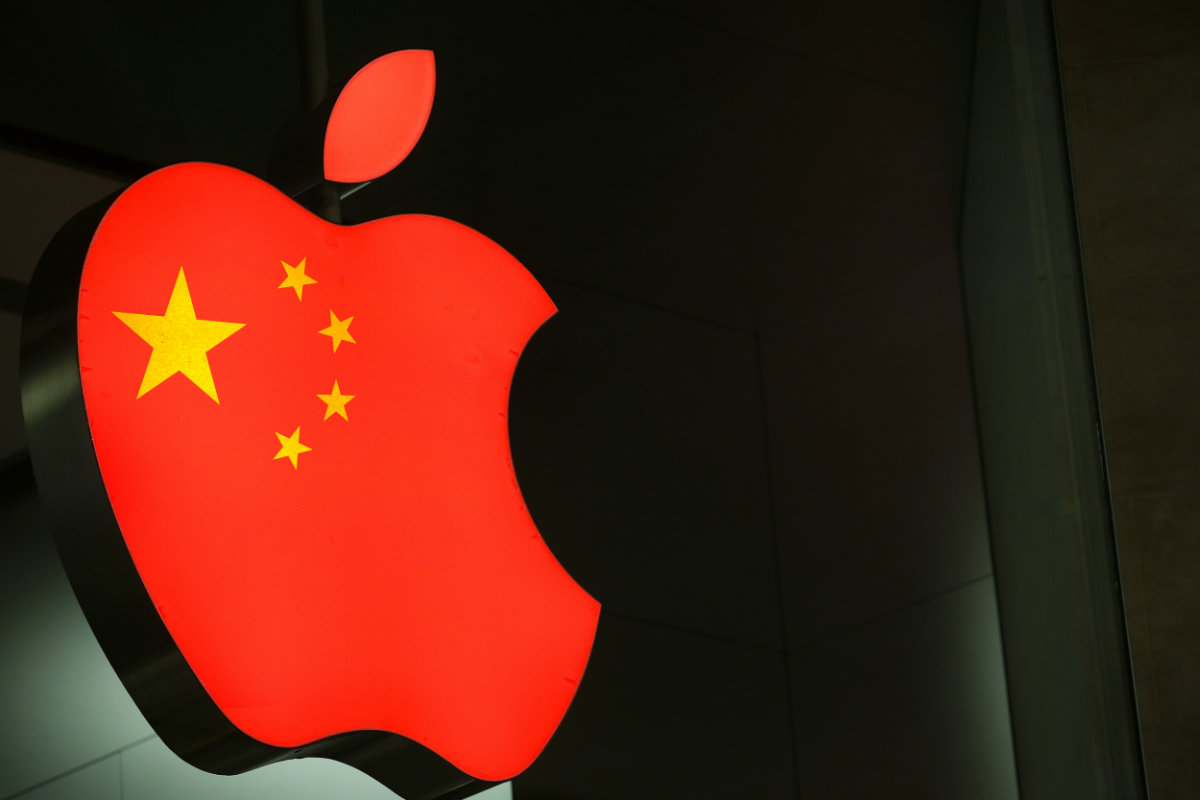
Healthcare
Recently, the Cupertino company's efforts to penetrate the healthcare sector have also been seen. It all started with the introduction of the Health app in 2014, which made it possible to aggregate data from all fitness apps. The Health application gradually made it possible to save and display data from other medical facilities, and even share them directly with your doctor. At the same time, the company presented the Apple Watch, which is gradually trying to become a real medical device thanks to the ECG function introduced a year ago. They still have a long way to go, but it will definitely be interesting to see how Apple will continue to develop in this area. Unfortunately, Apple did not surprise us with any significant health function for the latest Series 5.

What will be next?
The article will conclude with an attempt to answer one of the most fundamental questions regarding today's topic. What can we expect from Apple in the future? For now, the most likely seems to be the continuation of the currently established style, that is, the gradual improvement of the current devices and the improvement of the ecosystem, which will not let customers go to the competition. However, there are also indications that the future could be a little more colorful. Apple has not been hiding its interest in augmented reality for a long time, but we have not yet seen its actual use. Therefore, there are speculations that we could wait in the near future for example, smart glasses. And in recent weeks, information about the upcoming one has appeared second generation iPhone SE.
For now, a car with a bitten apple logo is more of a fantasy than a real possibility, but even in this industry, Apple certainly intends to implement it in some way. A certain certainty remains the engagement in the field of healthcare, where the company has great potential for the future and will probably try to make the Apple Watch a real medical device. It will also be interesting to watch the development and convergence of the iPad and Mac, the future of which is not easy to predict unequivocally today. However, other options are also available. After this year's introduction of the Apple Card and the subscription model, it would make sense to have its own cryptocurrency, but that is really just speculation. So let's close this topic with a quote from Jára Cimrman: "The future belongs to aluminium!" And looking at the material from which most Apple products are made, we can conclude that the greatest Czech visionary would not be far from the truth.

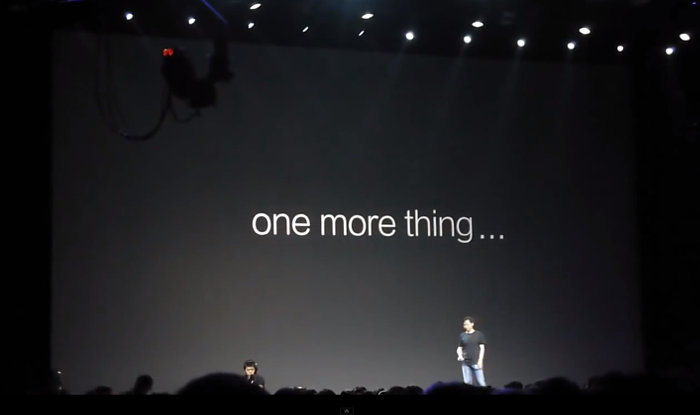

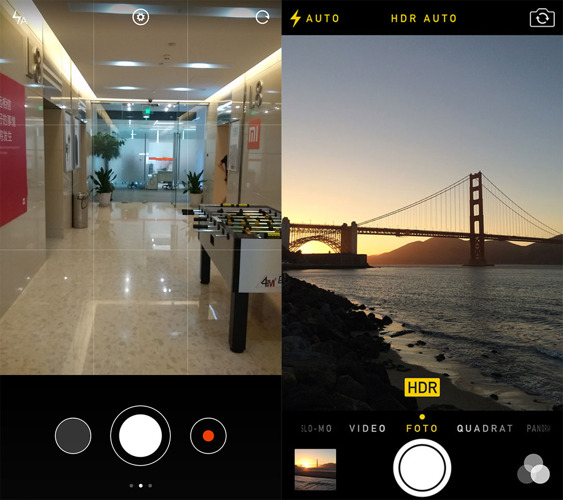



All you have to do is look at the latest iOS or macOS and you'll be sober. If Jobs were alive, Cook would be looking for a new spot!